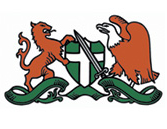The role of an insurance adjuster is to investigate the facts of a car accident and to negotiate a settlement. After an accident, an insurance adjuster investigates the accident to determine what happened. In addition to investigating an accident, an adjuster will also study your insurance policy and determine the compensation you should get. When approaching an insurance adjuster, it is advisable to be well prepared and respectful. However, it is essential to understand that an insurance adjuster works for the insurance company. If you have suffered damages in an accident, Los Angeles Car Accident Attorney can help you deal with Insurance adjusters.
Negotiating with an Insurance Adjuster
Most people often feel intimidated when negotiating their claims with insurance adjusters. However, if you have all the necessary documents and fully understand your claim value, you should not worry. With the help of an experienced accident attorney, you will have ample confidence to navigate the negotiation. You can employ several tips while dealing with an insurance adjuster:
-
Highlight the Points that Support Your Claim Value
While negotiating with an insurance adjuster, you should emphasize the points that support the value of your claim. Ensure that you outline all the circumstances that lead to the accident. Factors that support the value of your claim include the negligence of the other driver. If you have a good traffic record, you can highlight this fact to the adjuster. You could also outline what the police report says regarding the accident.
The insurance adjuster will probably be aware of all the facts of the accident. Why should you disclose the facts if the adjuster is already aware? The aim of highlighting the accident's facts is to let the adjuster know that you understand the case fully. By portraying that you understand the full value of your claim, you increase the chance of getting the appropriate compensation. The adjuster will know that he/she cannot take advantage of you.
-
State Your Desired Compensation
You should be bold and inform the insurance adjuster about the value of your claim and the amount you are seeking as compensation. At this point, the adjuster might not be willing to continue with the conversation. Instead, the adjuster might request you to give him/her time to consider your request and then get back to you. Adjusters use this tactic to make victims slow down and lure them into settling for lower compensation. The adjuster might not contact you for several days. However, no matter the circumstances, it is not advisable to lower your claim. As long as you are not at fault and have a documented insurance claim, you should never lower the value of your claim.
-
Submit the Required Documents
Until the insurance company has made a counteroffer, you should not lower your claim. To substantiate the accident claim, the insurance company might request for medical records and photos. Ensure that you submit the information that you feel will boost your car accident claim.
Your accident attorney will guide you through and help you compile all the documents that support your insurance claim.
-
Show Good Faith
You should show good faith while negotiating with an insurance adjuster because this will help steer the insurance claim to settlement. The adjuster is likely to recommend a low settlement amount. The adjuster aims to save the insurance company as much money as he/she can. Do not be emotional or feel offended if the adjuster makes a low offer. Instead, you should ensure that you are composed, calm, and professional throughout the negotiation process. Remaining calm allows you to negotiate effectively with the adjuster.
You might have to gradually reduce your settlement claim as you negotiate with the adjuster as the adjuster raises his/her offer. You could consider settling for an agreed-upon amount when you finally reach an acceptable range with the adjuster. You should not accept an amount that does not fully settle your outstanding medical bills. In addition to covering the medical bills, the amount you agree on should compensate you for other damages
Encountering an Attorney as an Insurance Adjuster
If an insurance company does not have local officers, they normally use attorneys to act as insurance adjusters. Therefore, you could encounter an attorney acting on behalf of the insurance company. At the city, county, or state levels, most public entities have attorneys who handle accident claims before the claims proceed to court.
If you have an experienced car accident attorney representing you, you do not have to worry even if you encounter an attorney working as an insurance adjuster. It is important to note that an attorney adjuster will handle matters the same way as a non-attorney insurance adjuster. However, an attorney acting as a claims adjuster is likely to be more aggressive. However, if you have an equally aggressive car accident attorney fighting on your behalf, you can get great compensation.
When You Fail To Agree With An Adjuster
Due to the conflicting interests between an insurance adjuster and a claimant, disagreements are common. You might find yourself at a roadblock where you cannot agree with the insurance adjuster. You will not gain any advantage by arguing or being rude to the adjuster. If you are unable to get along with an adjuster, you still have some options to explore:
Speak to Another Adjuster or The Adjuster's Supervisor
You could request to speak to another adjuster or the adjuster's supervisor if you cannot agree on a settlement after lengthy discussions with an insurance adjuster. Maybe what your claim requires is a different pair of eyes. The adjuster's supervisor can listen to both sides of the story and bring you and the insurance adjuster to an agreement.
Let Your Car Accident Attorney Handle The Adjuster
You do not have to deal with an insurance adjuster; an experienced car accident attorney can assist. Probably, your attorney has dealt with numerous insurance adjusters in the past. Therefore, an attorney possesses the right negotiation skills and understands all the tricks that insurance adjusters use. An attorney will help you know whether you are on the right track by determining whether your claim value is in line.
Working with an experienced attorney can help you land a larger settlement. An attorney will negotiate all the important aspects of your claim to ensure that you get the compensation you deserve. You can choose to cease all forms of communication with the insurance adjuster and refer the adjuster to your car accident attorney.
Liaise With The State Department of Insurance
If you do not seem to be making any progress with your car accident insurance claim, you could consider communicating with the State Department of Insurance with the help of your attorney. This move would be important if the insurance adjuster subjects you to unjustified delays in negotiating a settlement. Taking too long to respond to your concerns could qualify as bad faith on the adjuster or insurance company's side. Other factors that could warrant communicating with the Department of Insurance are low or unjust balling offers. You can file your complaint on the phone or in writing.
Things to Avoid
Facing the aftermath of a car accident is hard enough for most people without mentioning dealing with a tricky insurance adjuster. The insurance adjuster will engage you soon after the accident with the sole aim of reducing the insurance company's liability. It is advisable to be careful as you speak to the insurance adjuster. You should choose your words carefully because the adjuster can use the words you say against you. What should you avoid while dealing with an insurance adjuster?
-
Admitting that You are at Fault
You should not use apologetic language or admit fault while dealing with an insurance adjuster. When listening to your story regarding the accident, the adjuster will be looking for ways to relieve the insurance company of the burden of compensating you for the accident. If you state that you are to blame for the car accident, you could lose the chance of getting compensation.
In most cases, the insurance adjuster will talk to you on the phone after an accident. Even if you feel that you are to blame for the accident, you should avoid admitting fault. You should wait for an official investigation into the accident to reveal the party at fault. Remember that California is a comparative fault state. Comparative fault entails apportioning fault among liable parties. The accident might not be entirely your fault; other parties or factors could also be responsible for the accident.
-
Giving Speculative Information
You should never provide information to an insurance adjuster unless you are sure that the information is accurate. You should only communicate facts to the adjuster and avoid giving speculative information. Do not give your opinion regarding who you think is to blame for the accident or regarding what you think happened or caused the accident.
Speculative statements could adversely affect your case, especially if you later change your statement. The adjuster could accuse you of changing the original story and accuse you of a lack of integrity. When answering the adjuster's questions, you should ensure that your answers are short and objective. You should always tell the truth; however, avoid providing too much information, especially if the adjuster does not request for the information.
If you are not sure about a particular fact, you should avoid commenting on it instead of giving speculative information. Providing an insurance adjuster with inaccurate statements could greatly damage your case.
-
Disclosing The Details Of Your Injuries
When dealing with an insurance adjuster, you are not obliged to disclose certain details, especially the details of your injuries. In the course of your conversation, an insurance adjuster is likely to question your injuries. This could seem like a routine or obvious question, however, you do not have to answer. Instead of answering this question, you should inform the adjuster that your car accident attorney would reveal the details of your injuries in an official draft issued to the insurance company.
You might feel the urge to share the details of your injuries with the insurance adjuster. However, you should never give in to this urge. Immediately after an accident, some injuries are not apparent; therefore, you could easily underestimate your injuries. It is imperative to undergo a thorough medical examination to determine the extent of your injuries.
During a car accident, the body experiences a rush of adrenaline and numbness. You might only realize the extent or the seriousness of your injuries when you calm down, and the numbness fades off. Before discussing your injuries, it is advisable to undergo a full diagnosis. If you share information regarding your injuries with the insurance adjuster, he/she might assume that your injuries are minor. This assumption by the insurance adjuster could affect your insurance claim settlement.
-
Making Recorded Statements
Irrespective of the circumstances of your claim, you should never give a recorded statement to the insurance adjuster. It is important to note that you are not under any obligation to give such statements. An insurance adjuster could lure you into giving a recorded statement in the hope that you will give in. However, you have the right to decline the adjuster's request for a recorded statement. However, you should decline the request respectfully. An adjuster should not require an insurance statement from you under any circumstances
Declining to give a recorded statement is a good move because the adjuster will not have the ability to use the recorded statement against you. If the adjuster has your recorded statement, he/she could accuse you of changing your story if you miss a small detail in your consecutive statement. A slight difference in your statement could be a sign of a lack of credibility on your side; therefore, avoid giving a recorded statement.
-
Agreeing To The Initial Settlement Offer
When dealing with an insurance adjuster, the adjuster is likely to make a settlement offer claiming that it is the best and the final offer. However, you should not fall for this tactic and accept the first offer from the adjuster. The first offer that an adjuster makes is often much lower than the compensation you deserve.
Inform the adjuster that you cannot accept his/her offer until you first speak to your car accident attorney. It is always wise to get the opinion of a competent attorney regarding the value of your claim. Most insurance adjusters make this offer hoping that claimants will fall for the offer. It is wise to contact an attorney immediately after an accident. Unlike an insurance adjuster who is on the side of the insurance company, an attorney will be on your side.
-
Authorizing a Release of your Medical and Employment Records
The insurance adjuster could try to convince you to sign an authorization to help him/her access your medical or employment details. This is a mistake that most people make while dealing with insurance adjusters. By authorizing a medical release to the adjuster, the adjuster could dig deep into your medical history and unearth details that do not relate to the car accident. The adjuster could then claim that the medical conditions for which you are seeking compensation did not occur due to the accident. The adjuster might claim that you had the medical conditions even before suffering injuries in the car accident.
The same case might apply if you avail your employment details to the insurance adjuster. The adjuster might reveal unpleasant details like your discipline issues at work or poor performance reviews. This information could greatly affect your lost wages compensation as well as your compensation for lost income. If the insurance adjuster requests for any document or authorization from you, you should request him/her to speak to your attorney.
-
Failing to Consider Liens
When dealing with an insurance adjuster, you should avoid overlooking liens as you negotiate with the adjuster. Liens refer to payments that you will have to make from the settlement of your claim. At the time of negotiation, most insurance adjusters do not discuss the subject of liens. If you fail to consider liens while negotiating with an insurance adjuster, you could end up with much lower compensation. Some of the typical forms of liens include Medi-Care, Medi-Cal, and union benefits plans.
It is also important to ensure that you comply with the statutes of limitations for your accident case even as you deal with the insurance adjuster. In California, the statute of limitations for car accidents is two years. This means that you should file a personal injury lawsuit within two years from the accident date. If you fail to file a claim within the statute of limitations, you could miss compensation. Ensure that you engage the insurance adjuster soon enough to give you ample time for negotiations.
Getting the Most Out of an Insurance Adjuster
When making a personal injury claim after a car accident in California, you have to negotiate with the other party's insurance company. You can get the most out of an insurance adjuster by employing certain tactics:
Request the Adjuster to Justify a Low Settlement Offer
In most cases, an insurance adjuster makes a low settlement offer as a bargaining tactic. The adjuster seeks to determine whether you understand the value of your case by making a low offer. You can navigate around this trick by requesting the adjuster to provide a detailed explanation outlining why the settlement offer is so low. You should not lower the amount you put in the demand letter because the adjuster offers a low settlement amount.
Evaluate the adjuster's reasons for offering a low settlement amount. If you and your attorney agree to the adjuster's reasons, you could lower your demand. With the help of your attorney, you can give an appropriate reply to the adjuster and see how the adjuster reacts. Using the right negotiation tactics will ensure that the adjuster offers you a fair and reasonable settlement figure.
Insist on the Emotional Aspects of the Claim
While dealing with an insurance adjuster, it is not mandatory to go over all the aspects of your claim again. However, it is important to insist on some strong points. For instance, you could emphasize the defendant's negligence and the seriousness of your injuries. You could let the adjuster know that the accident inflicted painful injuries that could have lasting effects on your life.
It might also help to mention the emotional effects of the accident. There is no way of attaching a dollar value to emotional injuries. However, convincing the insurance adjuster about the seriousness of your emotional suffering could open a way to a fair settlement.
Document the Settlement in Writing
After intense negotiation with the insurance adjuster, you will agree at some point. It is advisable to ensure that you put the claim settlement in writing. Ensure that you present a letter to the adjuster, outlining the terms. The letter does not have to be lengthy; it should just outline the amount you agreed on. It should also outline the damages covered by the settlement and the time when you should expect to get settlement documents from the insurance company.
The Role of an Accident Attorney
A car accident attorney will play a major role in helping you deal with an insurance adjuster. Your attorney will help you negotiate an insurance claim and help you write to the insurance company. The attorney will also help you handle an insurance company that fails to make a fair settlement offer.
An insurance adjuster possesses vast information about the claims business. However, the adjuster does know your case as much as you or your attorney. You were present at the time of the accident. Only you can understand the extent of your injuries and the pain they cause. Therefore, with the help of an attorney, you can handle the insurance adjuster successfully.
Find a Los Angeles Car Accident Attorney Near Me
You have to prepare and understand the negotiation process to be able to deal with an insurance adjuster. The Los Angeles Car Accident Attorney team can assist if you need help in dealing with an adjuster. Contact us at 424-237-3600 and speak to an experienced attorney today.






